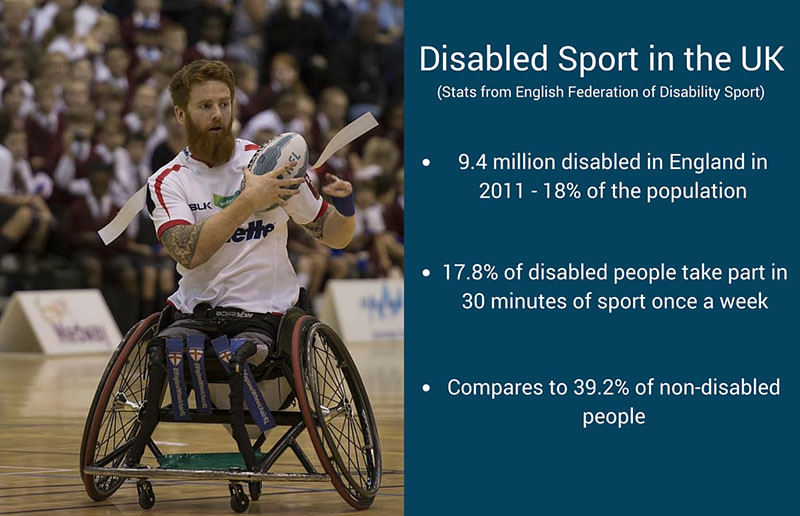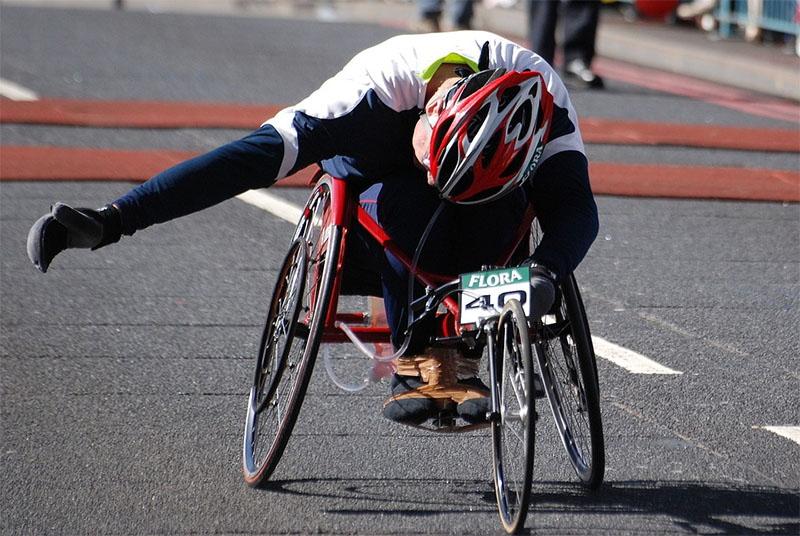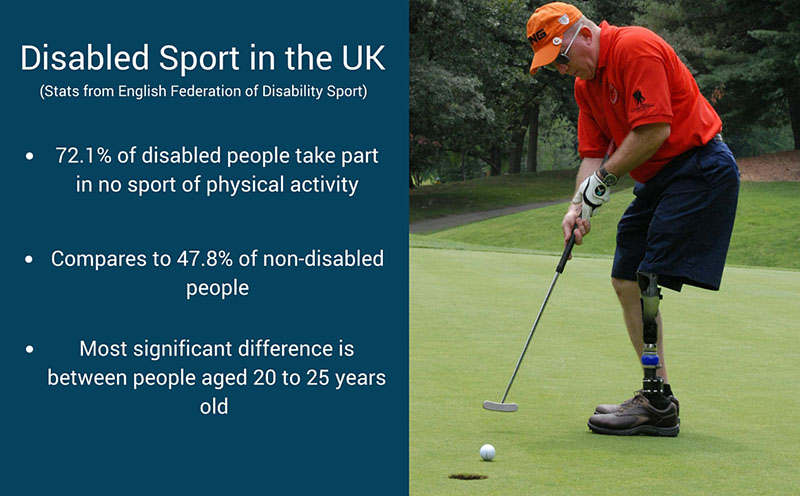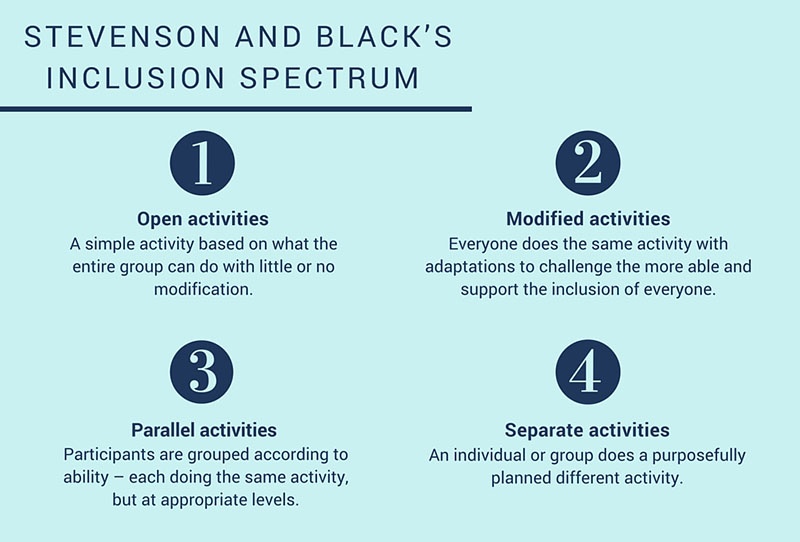Kai Morgan, a martial arts blogger with a special focus on women’s participation in and experience of the martial arts, recently attended a Sports Coach UK two-hour training session called “How to Coach Disabled People in Sport”,
She picked up a number of great pointers on coaching disabled participants - all of which apply to wide range of sports. Here is the best of them in her write-up of the course.
1. Think about what “disability” really means
The so-called “Medical Model” of disability is straightforward. It focuses on the fact that the person has some problem with their body and/or their mind; and that makes them disabled.
But on this course, we discussed in depth the “Social Model” of disability. In this model, it’s often seen to be society itself which causes the disability, by thoughtlessly putting up barriers, or making judgements about the person.

This model actually gives us a lot of power. Sure, we may not be able to cure someone’s blindness or their inability to walk. But there are a million and one things we can do to remove barriers to participation, and create a more inclusive club environment.
2. Take care with how you ask new club members to declare a disability
If you simply ask new students (or their parents) to say whether they have a disability or not on your membership form, many people will NOT self-identify as disabled. This is especially true if they are not officially registered as disabled; or if the condition is temporary.
You’re better off using more open-ended wording such asking something like: Do you have any special or additional needs which we can support you with?
3. Get as much information as you can before the person’s first session
The disabled person is the number one expert on what works (and doesn’t work) for them, followed closely by parents or carers if the disabled person is dependent on them for care.
An individual’s disability is often complex, and it can take time for you (and they) to understand the best way to support the person in your sport.

Talk to the person (and their carer(s) if appropriate) and ask them what they know about their disability. And really listen to what they say. It can often be useful to look at what’s worked for them in other situations and activities, and see how this can be applied in your own sport.
4. Be informed about the person’s medical needs
Some people with disabilities have additional health needs as a result, which you need to know about in your coaching. For example, they might have reduced skin sensitivity, which could lead to a greater risk of injury to their skin or soft tissue.
Another example is that people with Down Syndrome can be prone to Atlantoaxial Instability, which is increased mobility at the articulation of the first and second cervical vertebrae. The condition can be detected with a cervical spine x-ray. And people with AAI should not take part in any sports activities which could risk increased risk of injury to the cervical spine.
5. Reassuring the person that you’re not fazed by their additional needs can be a wonderful gift to them
People with disabilities are often used to others being uncomfortable or even scared around them. They may also have had negative experiences when trying to participate in sport.
So even if you’re feeling nervous yourself, try to communicate a strong sense that you are happy to have this individual in your club; and that you are optimistic and confident that you and they will find a way to make their participation successful.
6. Actions speak louder than words
A club can easily say that it has an “open door policy” and welcomes disabled people. But this doesn’t actually mean anything in itself, unless it is backed up by action. You need to show your commitment by making your club inclusive to the best of your ability, within what’s reasonable and achievable.
This may include needing to challenging discriminatory language or behaviour from your other students, even if they mean the things they say as a joke.
However, we also discussed the need to strike a balance, so that your other students don’t feel neglected or cheated by the amount of time and attention you give to your disabled student(s).
7. Don’t accept lower standards of behaviour in class
This applies particularly when people have learning disabilities, or conditions such as autism or ADHD.
Obviously there may be cases where the person is genuinely unable to meet your club’s standards of behaviour; but you should be very wary of making allowances just because you feel sorry for the person, or have low expectations, or see them as “childlike” in some way.
8. Check the practicalities
Make sure you’ve assessed the person’s needs, and taken account of them in your emergency evacuation procedures. For example, a deaf person may not hear a fire alarm. A person with a visual impairment or learning disability may well need assistance to leave the building in an emergency.
You also need to make sure that your insurance covers the person’s needs, and that your club’s first aid training is updated to take their needs into account if needed.

You may also need to revisit or even step up your general risk assessment practices to ensure that there are no hidden hazards for the person.
9. Check out funding sources
If you’re thinking of running some special, targeted activity for people with disabilities, it’s often worth trying your local council or your sports governing body, as there can be pockets of money for such projects.
10. Be creative and have fun
The highlight of this course for me was the focus on just how many creative ways there are to make your coaching accessible to people with disabilities. Participants came from a range of sports, and it was fascinating to hear about all the creative ways coaches work with disabled people.
At the heart of this discussion was an in-depth look at Stevenson and Black’s Inclusion Spectrum (2007). This divides activities into four main types:

Find out more
Sports Coach UK has produced a leaflet on using the Inclusion Spectrum. They also run a number of different coaching workshops - check them out here.
Disclaimer: Kai has no financial or other interest in the work of Sports Coach UK – this is simply a participant’s write-up of the event.
Kai Morgan is a martial arts blogger with a special focus on women’s participation in and experience of the martial arts. Check out her blog and download her free e-book on how to attract and retain more female students in your dojo.
